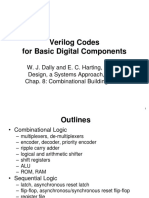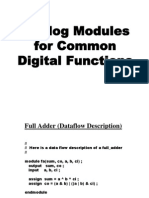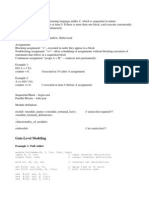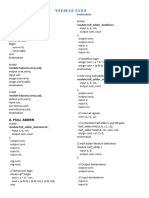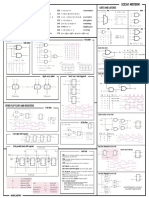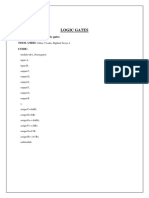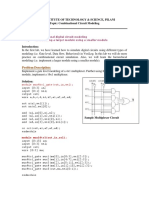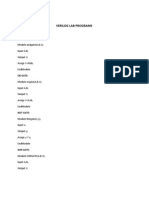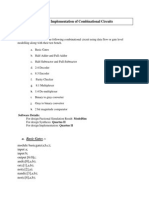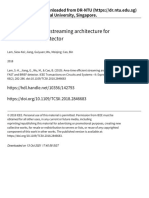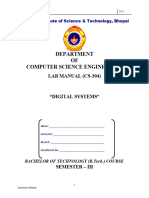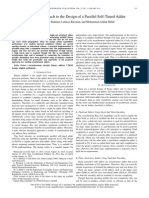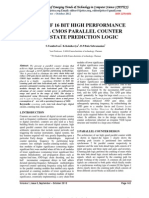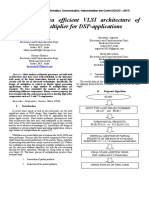0% found this document useful (0 votes)
44 views11 pagesTybsc Verilog Exp Code 2025
The document contains Verilog code for various digital circuits including multiplexers, demultiplexers, arithmetic circuits like half and full adders, flip-flops (T, D, JK, SR), and shift registers (PISO, PIPO, SISO, SIPO). Each circuit is presented using different modeling techniques: gate level, data flow, and behavioral modeling. The code illustrates the implementation of these components with appropriate input and output specifications.
Uploaded by
jcdt2bdvckCopyright
© © All Rights Reserved
We take content rights seriously. If you suspect this is your content, claim it here.
Available Formats
Download as PDF, TXT or read online on Scribd
0% found this document useful (0 votes)
44 views11 pagesTybsc Verilog Exp Code 2025
The document contains Verilog code for various digital circuits including multiplexers, demultiplexers, arithmetic circuits like half and full adders, flip-flops (T, D, JK, SR), and shift registers (PISO, PIPO, SISO, SIPO). Each circuit is presented using different modeling techniques: gate level, data flow, and behavioral modeling. The code illustrates the implementation of these components with appropriate input and output specifications.
Uploaded by
jcdt2bdvckCopyright
© © All Rights Reserved
We take content rights seriously. If you suspect this is your content, claim it here.
Available Formats
Download as PDF, TXT or read online on Scribd
/ 11

